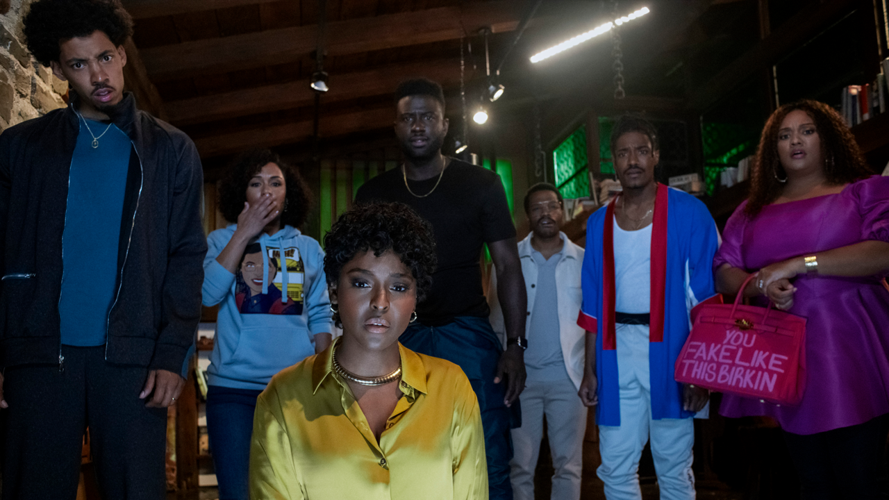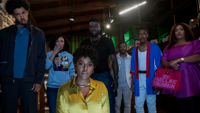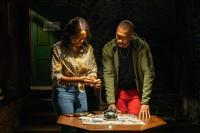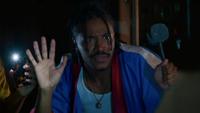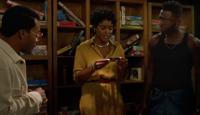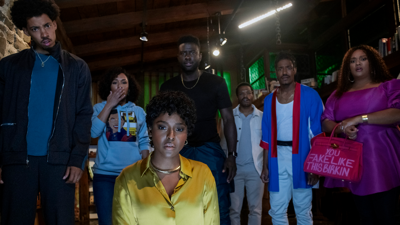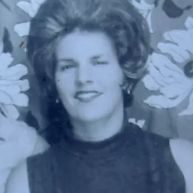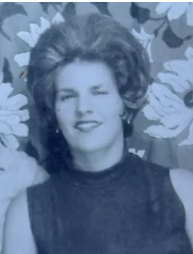The film was released during Juneteenth weekend, as the film is set during that same holiday period. Juneteenth commemorates the emancipation of slaves in Texas. It has since been expanded to become a broader recognition of African American history and culture. There are some places that are celebrating Juneteenth for the first time this year, as it was signed into law by President Joe Biden in 2021, while many were still restricting certain activities due to the COVID-19 pandemic. This film was written by Tracy Oliver (Girls Trip) and Dewayne Perkins who is part of the improv trio, 3Peat. Back in 2018, 3Peat created a sketch on Comedy Central called The Blackening that was adapted into this feature. The film, as the sketch, is about the arguments and critiques within the Black community about what is Black identity, what is endemic to it or how is it measured or determined.
In various ways, the film explores Black identity through the prism of horror tropes. It's no surprise that it references Jordan Peele's Get Out (2017). Yet, Peele was more attacking externalized racism from so-called white liberals regarding the microaggressions they often impose. Oliver and Perkins are instead attacking internalized racism from Black folks who often size up themselves or one another. Both Get Out and this film could be classified as horror comedy, but Get Out leans more into the horror, whereas this one definitely leans more into the comedy, mainly of the verbal variety with whip-smart one-liners.

The main joke here riffs off the trope that when it comes to a horror or any narrative involving people getting killed, often it's the Black person that gets killed first. This trope is alluded in the marketing and even the poster. The film, as the sketch, asks if the entire cast is Black, then which one gets killed first? This film resolves that question with the one to die first being the one deemed "the blackest," not necessarily in terms of skin color but in terms of behavior. It allows the film to call out stereotypical behaviors of Blackness or on-the-flip-side embrace and be proud of them.
The mechanics of how the narrative plays out makes this film feel like a mix of Scream (1996) and Jumanji (1995). In terms of quality, it lands somewhere in the middle. It's not as sharp as Scream and perhaps not as fun as Jumanji. The mechanics could also be compared to The Cabin in the Woods (2011), but that film leaned more into the supernatural, the fantastical and even the gory. This film, directed by Tim Story (Ride Along and Think Like a Man), doesn't really have any gore or much blood for that matter.

When it comes to the acting, three of the performers stand out of the eight total. Dewayne Perkins himself appears as Dewayne, an openly gay friend from college who reunites with his social group from school after being apart for years. The second is Jermaine Fuller (Coming 2 America and Sorry To Bother You) who plays Clifton, a nerdy and nervous Nellie who is mocked for using an Android phone and could be a clone of Steve Urkel from Family Matters (1989). The third is X Mayo (American Auto and The Daily Show) who plays Shanika, the loud and sassy, full-figured Black woman who tells it like it is. She gets most of the funniest lines.
If one remembers Scream, the serial killer in that film asked questions about horror films. Arguably, the questions are meant to be for horror fans who really know the nitty gritty details of slasher flicks. For this film, the serial killer asks questions about African American culture, even pop culture, that are meant for people already well versed. Just as Scream was a treat for horror fans, so shall this be a treat for African American pop culture aficionados.

Rated R for language, violence and drug use.
Running Time: 1 hr. and 36 mins.
In theaters.


